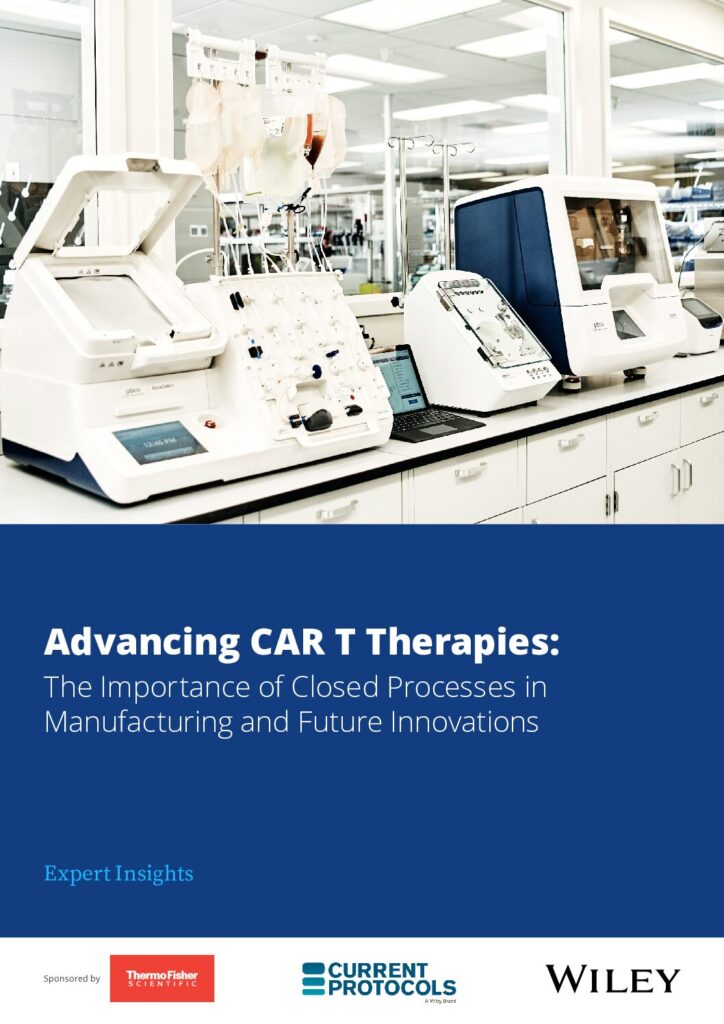Download this complimentary Expert Insights eBook today!
This Expert Insights eBook hopes to provide scientists with more information on T-cell therapy progress and knowledge to propel the frontiers of personalized medicine and therapeutic development.
You will gain insights on:
- Advanced T-cell engineering techniques.
- Optimization of T-cell production processes.
- Novel therapeutic strategies for personalized medicine.
Click “Get Access” to download the Expert Insights eBook PDF now.

More Information
In addition to advances in cancer treatments, T-cell therapy also represents a transformative approach to the treatment of autoimmune and rare diseases. This form of immunotherapy involves isolating and modifying T-cells, a type of white blood cell integral to the immune response, to target diseased cells more effectively. Two innovative forms of T-cell therapy are at the forefront of this research: Chimeric Antigen Receptor T-cell (CAR-T) therapy and T-cell Receptor (TCR) therapy. Historically, CAR-T therapy was designed to engineer T-cells to express a synthetic receptor that can directly recognize and bind to antigens on the surface of cancer cells. Once reintroduced into the patient’s body, this allows the modified T-cells to attack and destroy the diseased cells. In recent years, the field has seen an increasing number of studies leveraging CAR-T cells to treat autoimmune diseases, utilizing a similar concept to identify hyperactive B cells. TCR therapy takes a slightly different approach by modifying the natural T-cell receptors to recognize specific cancer antigens presented on the surface of tumor cells by the major histocompatibility complex (MHC). This enables the T-cells to detect and target the internal proteins of cancer cells, which can be particularly useful for solid tumors that are less accessible to CAR-T cells.
Articles contained in the collection:
Liu, Y., et al. (2023). A closed, autologous bioprocess optimized for TCR‐T cell therapies. Biotechnology and Bioengineering. DOI: 10.1002/bit.28389
Nie, F., et al. (2024). TREM1/DAP12 based novel multiple chain CAR‐T cells targeting DLL3 show robust anti‐tumour efficacy for small cell lung cancer. Immunology. DOI: 10.1111/imm.13776

